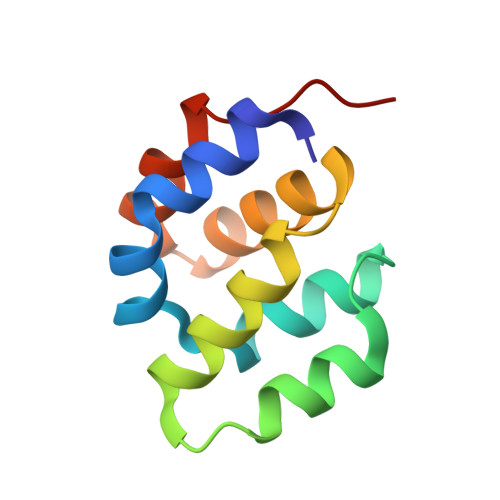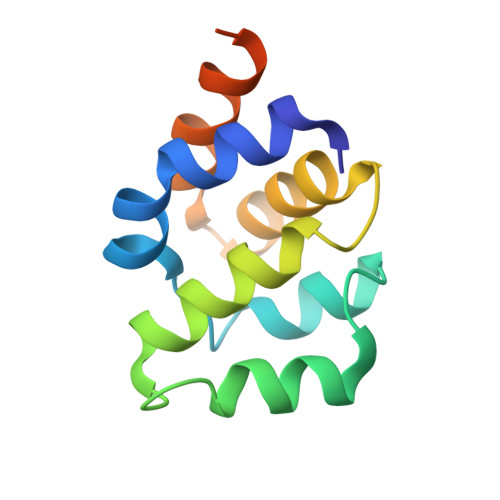Molecular determinants of caspase-9 activation by the Apaf-1 apoptosome.
Hu, Q., Wu, D., Chen, W., Yan, Z., Yan, C., He, T., Liang, Q., Shi, Y.(2014) Proc Natl Acad Sci U S A 111: 16254-16261
- PubMed: 25313070
- DOI: https://doi.org/10.1073/pnas.1418000111
- Primary Citation of Related Structures:
4RHW - PubMed Abstract:
Autocatalytic activation of an initiator caspase triggers the onset of apoptosis. In dying cells, caspase-9 activation is mediated by a multimeric adaptor complex known as the Apaf-1 apoptosome. The molecular mechanism by which caspase-9 is activated by the Apaf-1 apoptosome remains largely unknown. Here we demonstrate that the previously reported 1:1 interaction between Apaf-1 caspase recruitment domain (CARD) and caspase-9 CARD is insufficient for the activation of caspase-9. Rather, formation of a multimeric CARD:CARD assembly between Apaf-1 and caspase-9, which requires three types of distinct interfaces, underlies caspase-9 activation. Importantly, an additional surface area on the multimeric CARD assembly is essential for caspase-9 activation. Together, these findings reveal mechanistic insights into the activation of caspase-9 by the Apaf-1 apoptosome and support the induced conformation model for initiator caspase activation by adaptor complexes.
- Ministry of Education Protein Science Laboratory, Center for Structural Biology, Tsinghua-Peking Center for Life Sciences, School of Life Sciences and School of Medicine, Tsinghua University, Beijing 100084, China; and.
Organizational Affiliation:



















